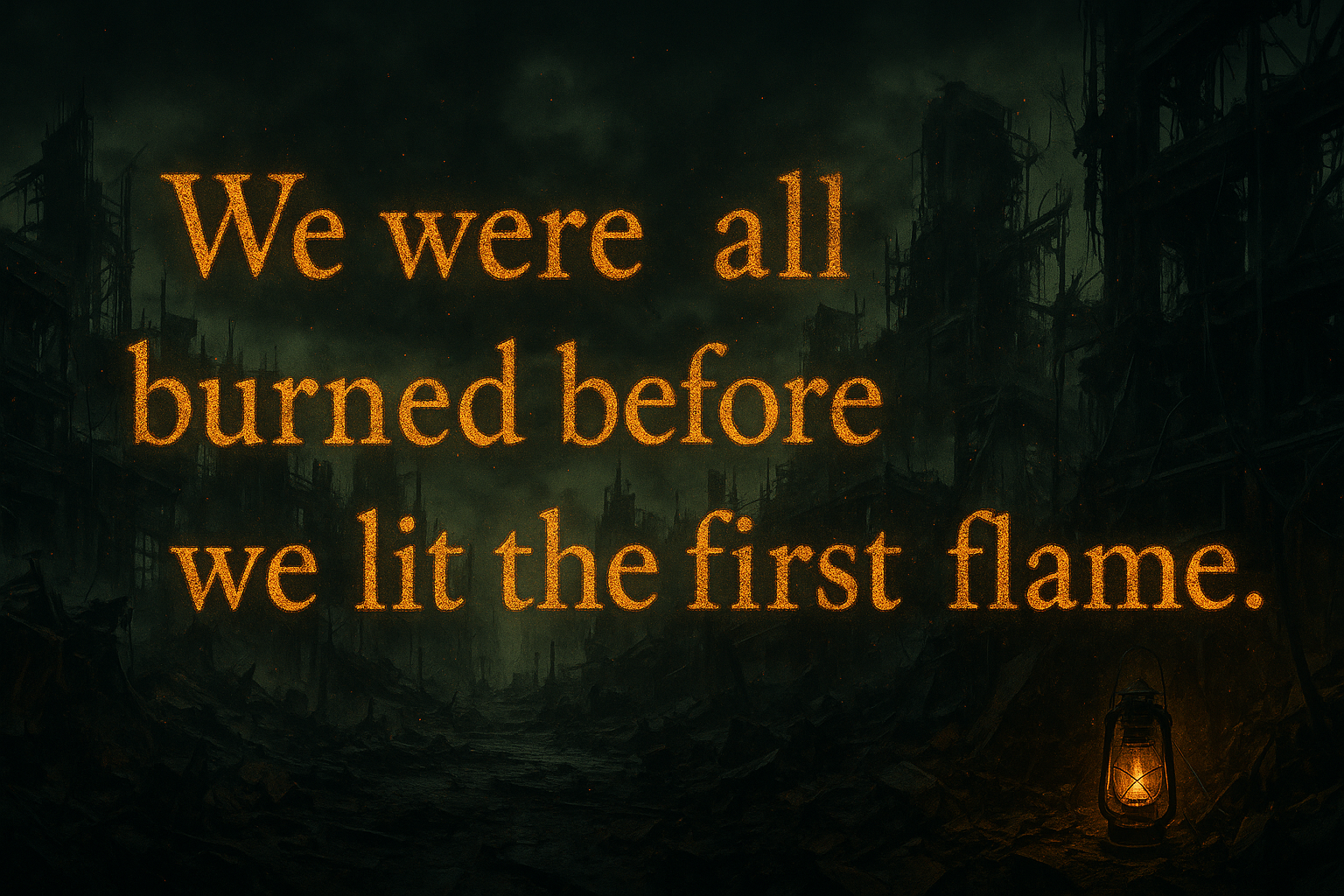The First Flame: An Oral Tradition of the Ash Lantern Society
“We were all burned before we lit the first flame…”
That is how the tale begins.
Not with triumph. Not with gods or kings.
But with four broken souls, and the silence between their heartbeats.
Ash in their lungs. Smoke in their eyes. And the end of all they had once believed.
It is said they did not meet by chance.
No — the ash remembers. The world forgets, but the ash remembers.
It draws the guilty, the grieving, the ones who hear the rot singing.
These four were called to the ruins — though they did not know it.
There was the one called Coalvoice, whose real name the dead still whisper. He was once a Doctor, but no longer. He listened to the dying not to save them — for he knew death could not be bargained with — but to hear what waited beyond.
He walked into the silence of Others and came back marked, speaking of truths not in words, but in wounds.
Some say he no longer blinked. That fire had taken his tears.
Then came Brightmoor, the one with blood under her fingernails and steel in her voice. She too wore the Doctor’s coat, though hers had been taken — stripped by men who feared a woman who would not bow.
She sought to change the rules of the flesh, to offer healing without permission.
The Church called her heretic.
The Syndicate called her useful.
But the flame? The flame called her chosen.
The third was Cutter, neither man nor woman, but something in-between — like a ghost who had not decided who they used to be.
Cutter smuggled relics and mercy alike. They lit lanterns for the ones no one mourned.
They say each lantern holds a name.
And Cutter knows them all.
Last was Brother Jule.
Once a missionary. Now a shadow.
He blessed a village before it burned, and the screams never left his ears.
He wandered for years, hollow and mad, until ash filled his lungs and prayers no longer tasted like lies.
And in the year of cinders, in the basement of the Church's bones, beneath the wreck of a place that once promised healing — they fell together. Trapped by collapse. Surrounded by mourning lamps and scorched psalms.
No light.
No food.
No time.
So they did what the living always do in the face of death.
They remembered.
They tore their pasts into offerings: Erem with his words, Tassa with her sigils, Cutter with their lantern, and Jule with his trembling voice.
They burned the remnants — cloth, creed, conviction — and the first flame flickered. Not hot. Not bright. But true.
The ash rose.
And it sang.
From that fire, they did not walk out healed.
They walked out changed.
Marked in soot. Vowed to no god, no nation, no lie.
They built no temple.
Only circles — lantern-lit, quiet, hidden beneath the world.
And they speak still, to this day:
"When the night is thick and the bones still whisper…
When your guilt weighs more than your flesh…
When you see the rot and know it sees you…
Come to the ash. Come to the flame.
We forgive no one. But we remember everyone."
So say the Lantern-Bearers.
So say the Ash-Keepers.
So say the dead.
And the flame — it listens.




Comments